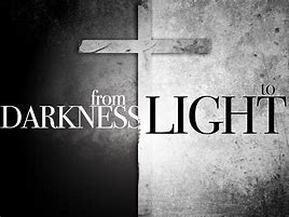Fourth Sunday of Lent
Prayer
Enlighten our minds with your revealed truth and inspire our hearts with your divine love — so that by our courageous witness to your Name here on earth we may come to know your ways better during this lenten period
Amen.
 Fourth Sunday of Lent
Fourth Sunday of Lent
Gospel
John 3:14-21
Jesus said to Nicodemus:
‘The Son of Man must be lifted up
as Moses lifted up the serpent in the desert,
so that everyone who believes may have eternal life in him.
Yes, God loved the world so much that he gave his only Son,
so that everyone who believes in him may not be lost but may have eternal life.
For God sent his Son into the world not to condemn the world, but so that through him the world might be saved. No one who believes in him will be condemned; but whoever refuses to believe is condemned already, because he has refused to believe in the name of God’s only Son.
On these grounds is sentence pronounced: that though the light has come into the world men have shown they prefer darkness to the light because their deeds were evil.
And indeed, everybody who does wrong hates the light and avoids it, for fear his actions should be exposed; but the man who lives by the truth comes out into the light, so that it may be plainly seen that what he does is done in God.’
In the Catechism
581 The Jewish people and their spiritual leaders viewed Jesus as a rabbi. He often argued within the framework of rabbinical interpretation of the Law. Yet Jesus could not help but offend the teachers of the Law, for he was not content to propose his interpretation alongside theirs but taught the people "as one who had authority, and not as their scribes". In Jesus, the same Word of God that had resounded on Mount Sinai to give the written Law to Moses, made itself heard anew on the Mount of the Beatitudes. Jesus did not abolish the Law but fulfilled it by giving its ultimate interpretation in a divine way: "You have heard that it was said to the men of old. . . But I say to you. . ." With this same divine authority, he disavowed certain human traditions of the Pharisees that were "making void the word of God".
2130 Nevertheless, already in the Old Testament, God ordained or permitted the making of images that pointed symbolically toward salvation by the incarnate Word: so it was with the bronze serpent, the ark of the covenant, and the cherubim.
219 God's love for Israel is compared to a father's love for his son. His love for his people is stronger than a mother's for her children. God loves his people more than a bridegroom his beloved; his love will be victorious over even the worst infidelities and will extend to his most precious gift: "God so loved the world that he gave his only Son."
444 The Gospels report that at two solemn moments, the Baptism and the Transfiguration of Christ, the voice of the Father designates Jesus his "beloved Son". Jesus calls himself the "only Son of God", and by this title affirms his eternal pre-existence. He asks for faith in "the name of the only Son of God". In the centurion's exclamation before the crucified Christ, "Truly this man was the Son of God", that Christian confession is already heard. Only in the Paschal mystery can the believer give the title "Son of God" its full meaning.
454 IN BRIEF The title "Son of God" signifies the unique and eternal relationship of Jesus Christ to God his Father: he is the only Son of the Father; he is God himself . To be a Christian, one must believe that Jesus Christ is the Son of God .
458 The Word became flesh so that thus we might know God's love: "In this the love of God was made manifest among us, that God sent his only Son into the world, so that we might live through him." "For God so loved the world that he gave his only Son, that whoever believes in him should not perish but have eternal life."
Vertical Divider

